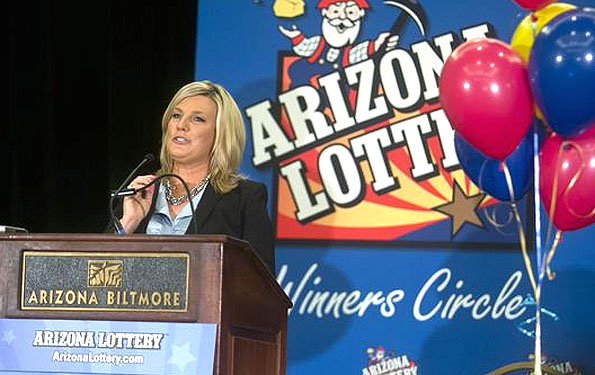These 7 Essential Questions Are Asked By Every Lottery Player, So Here Are The Official Answers
/ Lottery winners in Arizona will be able to keep their anonymity under a bill passed this week by the state House of Representatives. Staying under the radar is important for winners. Story: KPHO
Lottery winners in Arizona will be able to keep their anonymity under a bill passed this week by the state House of Representatives. Staying under the radar is important for winners. Story: KPHO
There's a lot of misunderstanding about lotto on the internet. Some days it's impossible to know what is real and what is made up.
That's why authoritative answers are especially important, like these answers from the NASPL, an association founded way back in 1971 and which now represents 52 USA lottery organisations.
Bookmark this page, it's important:
Q. What will happen if I win a big prize?
Winners of large prizes must bring the winning ticket to lottery headquarters -- the amount at which you must show up in person varies from jurisdiction to jurisdiction. The ticket will be examined by lottery security staff for authentication. The lottery usually gives some advice on seeking financial and legal advice along with some practical advice like getting an unlisted phone number.
Q. Do I have to appear in publicity photographs?
All but a very few states and provinces have laws that require the lottery to make public the name and city of every winner (to assure the public that there are real winners). The lottery will ask the winner to participate in a press conference. Most take that option. It really is a good idea to get it over with since the press is likely to pursue your story until they get some questions answered.
Q. What kind of questions will I be asked at a press conference?
Questions are usually along the lines of "will you quit your job?" or "what will you do with the money?" or "how did you tell your family you won?" After a few weeks the excitement usually dies down and you can go about your life.
 The NASPL website
The NASPL website
Q. Can winners remain anonymous?
Usually not. State and provincial lawmakers want the public to know that the lottery is honestly run and so require that at a minimum the name of the winner and their city of residence be made public. This way the public can be reassured that the prize really was paid out to a real person.
Q. Some large lottery prizes pay out over a period of several years. What if the holder of this type of prize dies before collecting it all?
In this case the prize is considered to be part of the estate and is passed along to the winner's heirs. Contrary to popular belief, the prize does not revert to the government. The only exceptions are "win for life" games where a prize is guaranteed for the rest of the winner's life. In this case the payments stop with the winner's death.
Q. How long do I have to claim my prize?
The time to claim a prize varies from place to place, but typically is between six months and one year.
Q. What happens to prizes that aren't claimed?
The disposition of unclaimed prizes varies from lottery to lottery and is governed by the laws of that state or province. In some cases all unclaimed prizes reenter the prize pool and increase the payout on future games. In other cases the money goes to the government to benefit the causes the lottery supports.





































